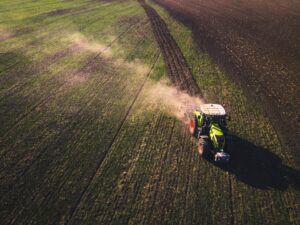The Complexity of Agricultural Sector Transformation
Transforming the agricultural sector isn’t a simple case of handing over a piece of land and telling the beneficiaries to start farming. It involves a complex interconnection of numerous critical success factors, without which enterprises are likely to fail. This was the message echoed by all parties during a recent media field trip and round table discussion in Ceres.

PALS: A New Model for Agricultural Land Development
PALS, a non-profit organisation developed by farmers in Ceres, in cooperation with local communities, provide emerging black farmers with the support, insights, and expertise they need to thrive as commercial farmers. The organisation and its work represent a fundamental departure from post-land reform models and are based on sound business principles, legal structures, mentorship and training.
Key Success Factors for Agricultural Enterprises According to PALS
Lennox Plaatjies, national liaison manager for PALS, says that the organisation has identified 8 characteristics for an agricultural enterprise to be considered a PALS project. And while security of tenure to land is a vital component, it’s not more important than the other 7, which include a feasible, bankable business plan; knowledge transfer and mentorship; a legal entity with structure and agreements to protect all partners (including dispute resolution mechanisms and exit strategies); socio-economic upliftment of the people who work the land; capital or financing; access to markets; and ‘skin in the game’. “We so firmly believe in all these factors that we’ve created a special PALS framework, which is a registered trademark and has become our holy grail.”
This approach is working, with 47 successful projects implemented over the past 8 years. All these projects are profitable, and many are exporting fruit to international markets, which is testimony to the quality of their produce.
Challenges and Solutions in Financing Agricultural Transformation
Cobus de Bruyn, of Agriculture at Nedbank says that, while PALS has been a hugely successful programme, all stakeholders – including banks – are frustrated by the limited access to finance for this sector. “Banks are all looking for ways to approach the sector. For example, we have a special transformation solution that offers both financial and non-financial components. In collaboration with PALS, transformation credit applications are approached differently to traditional lending parameters. We also partnered with Hortfin and signed a cooperation agreement to co-fund transformation transactions in the fruit sector.”
This partnership will also help make access to finance easier. For transformation to be successful, it is essential that the complete agricultural value chain put its weight behind transformation initiatives.
National Initiatives for Agricultural Transformation
The Minister of Agriculture, Land Reform and Rural Development launched a R3,2 bn Blended Finance Scheme with the Land Bank last year, but the scheme also needs to be rolled out to all commercial banks for change to happen at scale.

Speaking at the PALS annual general meeting, Wandile Sihlobo, Chief Economist at Agbiz, said that, although slow, South Africa has made more progress on land reform than is believed. ‘Based on numbers extracted from official sources, it is estimated that 24% of all farmland has been redistributed and that land rights have been restored. This is very close to the target of 30% by 2030. Since 1994 black farmers have also acquired almost 2 million ha of farmland – or 2,3% of total freehold farmland – on their own without any assistance from the state-sponsored land redistribution programme, indicating that they’re willing to put skin in the game to succeed.
Conclusion: The Importance of Collaboration and Growth in Agriculture
“Ultimately, it’s not as simple as replacing white farmers with black farmers. We need to grow the agricultural pie in South Africa to support all farmers, and that requires collaboration, commitment and combined effort from all stakeholders, as PALS has so ably demonstrated,’ concludes Sihlobo. N.B.

